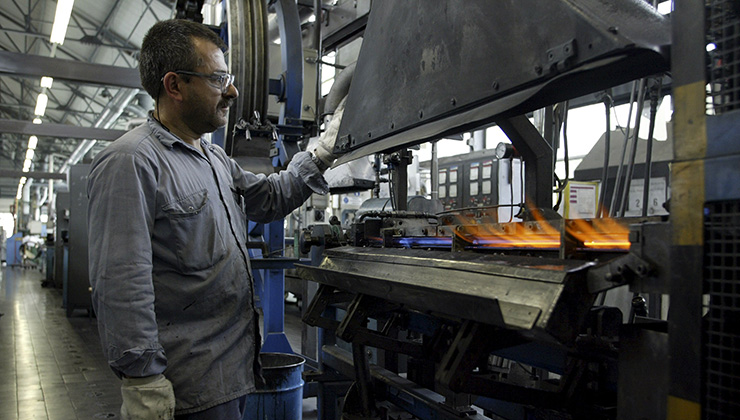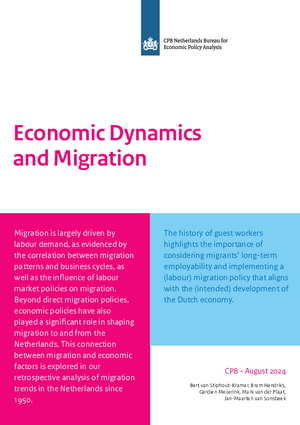State of the economy and economic policy play a key role in shaping migration

Economic policy
Labour market flexibility, like the use of temporary contracts, encourages employers to recruit more migrant workers. For example, research indicates that lower levels of employment protection legislation lead to a higher migration balance (immigration minus emigration). It is not clear yet whether raising the minimum wage may increase or decrease immigration. Additionally, while there is no clear evidence that a more extensive social safety net is a major pull factor for migrants, this safety net did play a crucial role in the permanent settlement of guest workers in the twentieth century.
Downloads
Lessons from the past
The report also draws a number of lessons from the guest worker history of the 1950’s, 60’s, and 70’s. Like today, the desire was to attract labour migrants temporarily, but many guest workers eventually settled permanently in the Netherlands. In the years that followed, many of the industries for which guest workers had been recruited – like textile and mining – contracted. This resulted in high levels of unemployment among guest works, who often had difficulty finding other work due to their limited schooling. Therefore, it is advisable to consider the long-term employability of migrants and to implement a migration policy that aligns with the desired direction of the Dutch economy and the corresponding labour market needs.
Authors





